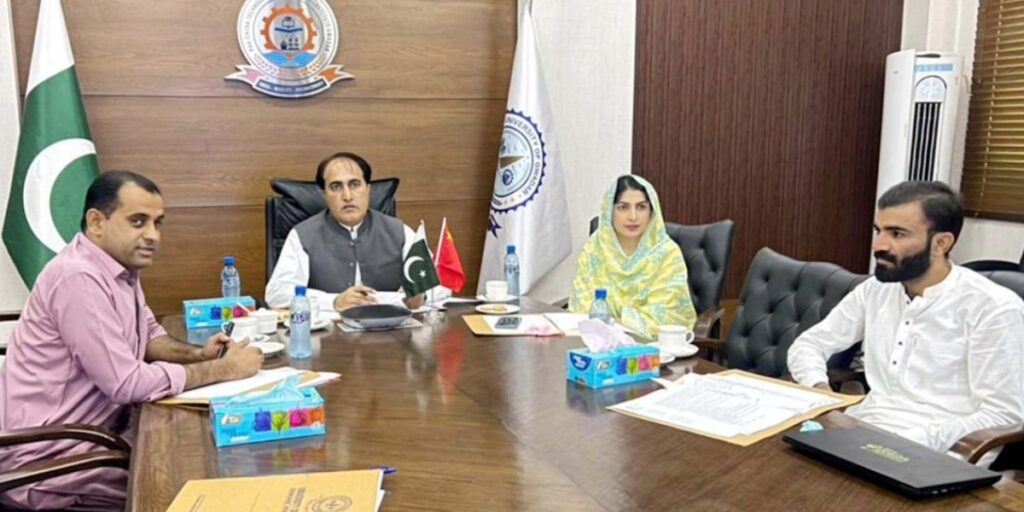Gwadar: The Gwadar university looks forward for the promotion of the Artificial Intelligence (AI) for the students.
The University of Gwadar has shifted its focus toward advancing modern technology and academic innovation by prioritizing the promotion of Artificial Intelligence (AI).
The fifth Board of Studies (BoS) meeting of the Computer Science Department was held at the Pak-China Technical & Vocational Institute (PCT&VI), chaired by Dr. Mohib Ullah, Dean of the Faculty of Sciences, Engineering & Technology.
The meeting was attended by members including Mr. Shehak Ali (Chairperson, Department of Computer Science), Dr. Rasheed Ali (Lecturer & Acting Chairperson, University of Turbat), Dr. Rabia Aslam (Director QEC), Mr. Hafizullah, Ms. Hyem Gul, Mr. Syed Ahmed Khan (Lecturer, FAST-NC Karachi), and Mr. Nasir Ali (Teaching Fellow, University of Gwadar).
The session began with the recitation of the Holy Quran, followed by acknowledgment of the department’s timely efforts in updating the BS Computer Science curriculum under the latest HEC guidelines.
The revised BS Computer Science (2025) curriculum was reviewed thoroughly and formally endorsed, along with the Associate Degree in Computing (AD Computing).
Additionally, the board recommended forwarding the newly designed BS program — enriched with market-oriented specializations — to the Academic Council for approval.
The board also approved the new course coding structure in line with NCEAC standards and formed a committee to formulate guidelines for Final Year Projects (FYPs).
Highlighting the significance of AI-driven education, Dr. Mohib Ullah stated that artificial intelligence is transforming industries worldwide, and graduates must be equipped with advanced digital skills to contribute effectively to Pakistan’s technological development.
He reaffirmed the university’s commitment to becoming a leading hub of excellence in AI and computing education aligned with national priorities and global technological trends.
The chairperson concluded the meeting by thanking all members for their valuable input toward the academic, technological, and strategic advancement of the university.





